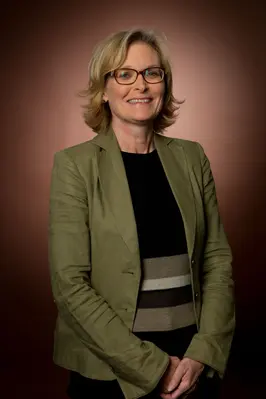 Research shows that the influence of women on the travel sector is growing and it is therefore crucial to attract and retain women, both as employees and customers.
Research shows that the influence of women on the travel sector is growing and it is therefore crucial to attract and retain women, both as employees and customers.
With women becoming increasingly important in the hotel, event, incentive and travel markets, targeted marketing is essential in order to maximize growth and progress business development.
Statistics from leading travel site The Gutsy Traveller indicates women make the majority of family holiday purchasing decisions, while female business travellers are one of the fastest-growing customer segments in global hospitality. In the US, it is estimated that women will spend $125billion on travel in the next year. Marketing bestseller, Inside Her Pretty Little Head, by Cunningham and Roberts, flags that globally, for almost every product and service range, women make 80% of all consumer goods purchasing decisions.
Cap Strategic Research and Web in Travel have both carried out research on the needs and desires of women business travellers, and have come to the conclusion that women do not want to be treated completely differently to male travellers, but do not want to be treated completely the same either. While women have many of the same needs as their male counterparts, they still demand the hospitality industry to be aware of, and cater to their preferences, which is more to do with the type of service they receive, than any sort of preferential treatment.
In Cap Strategic Research?s 2011 report, which surveyed the needs of women travellers in the US and UK, a significant 66% of women travellers state that travel companies would see an increase in their business if they tried harder to serve women travellers. Therefore, attracting women to sign up to traveller loyalty programmes would increase profit for companies focusing on this segment. The report concludes that companies that address women?s specific needs will achieve competitive advantage leading to improved revenue and profitability.
According to gender balance experts 20-first , so prominent is the rise of female consumerism, that Goldman Sachs created a basket of funds called the WOMEN 30 that specifically pinpoint businesses selling to women. These businesses have outperformed the average stock exchange over the past decade.
From an employee standpoint, women make up an ever-increasing share of the global talent pool. At Glion, we have 47% male students, compared to 53% female, which points towards a larger ratio of tomorrow?s hospitality leaders being women. A recent OECD report on the reversing of gender inequities in education predicted that by 2020 women will make up 76% of all graduates in Sweden, 74% in the UK, 56% in Korea and 54% in Japan (20-first).
Women?s accumulative education is accompanied by their increasing earnings and professional credentials. Women earn 40% of the world?s GDP and, in the UK specifically, women are expected to own 60% of all personal wealth by 2025. In Canada, 70% of new business start-ups are initiated by women (Inside Her Pretty Little Head).
While many of the available reports and statistics relate to Europe and North America, all trends point towards a growing female market across Asia also. In a recent survey of more than 21,000 bookers across Shanghai, Beijing, Singapore, Kuala Lumpur and Jakarta, it was found that women formed almost 85% of bookers and contributed to 89% of room nights (iRewards).
Accor Advantage Plus, the membership scheme for Accor hotels, runs 41 offices and makes 13 million calls a year, with women making up 80% of their workforce. Their most successful programmes are in Guangzhou, Shanghai, Jakarta, Wollongong and Sunshine Coast, Australia, all of which are run by women.
While the gender issue in hospitality is not a new one, it?s taken on more urgency in 2013 because of the growing power of the female dollar. Why aren?t things more marketed to women? It?s an old issue yes, and we breathe this, we grow up with it, we see what we believe and we continue with it without questioning why. Companies that are diverse in their leadership have a better chance of profiting from this segment of travellers.
In terms of present and future global talent, and taking into account that female travellers are becoming an increasing important and influential consumer segment, a focus on women may be the easiest way to ensure bottom line growth. In short, Womenomics is paving the way towards sustainable business development for the hospitality industry.
Glion Institute of Higher Education is one of the top three institutes of higher education for an international career in hospitality.
















